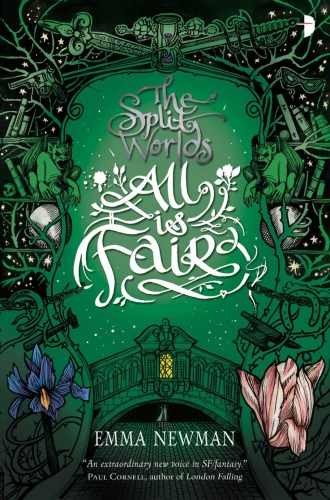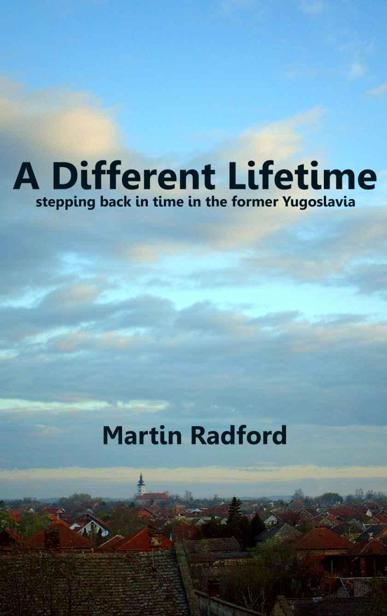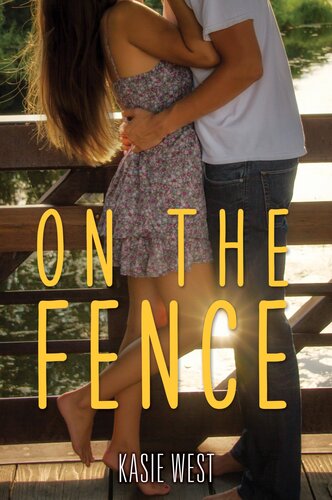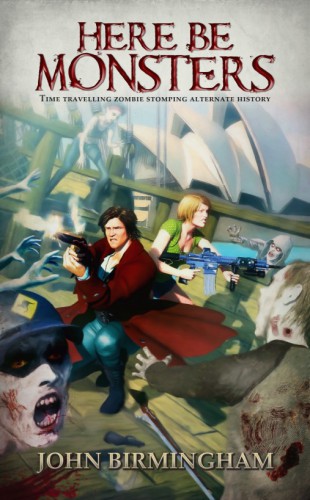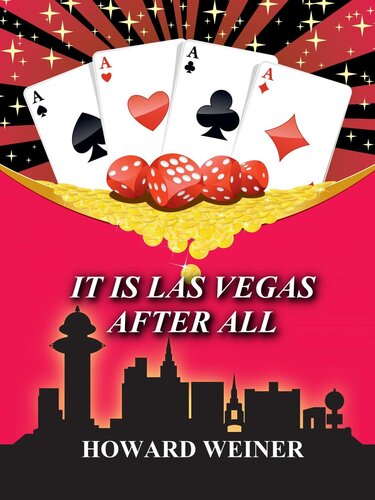oleebook.com
The Hunger of Women de Marosia Castaldi
de Marosia Castaldi - Género: English
Sinopsis
Leaping from recipe to recipe, this unique, poetic Italian novel charts a middle-aged woman's belated embrace of the sensualopening a restaurant and loving other women.
Libros Recomendados - Relacionados
Reseñas Varias sobre este libro
First I made the clam sauce for the spaghetti Then I put a big pot on the stove with tomato sauce in which I poured some scorpionfish squids clams octopus small codfish and mullet and wedge clams and cockles and calamari and shrimp along with fresh garlic and parsley to make a thick and succulent fish soup that contains all the ancient flavor of this sea finite flayed furrowed by ships carrying centuries gold millennia wines spices oils handicrafts freemen slaves This sea struck by waves by lights which never forgets a vessel a lighthouse a house This sea of buried dead And back come the millennia and centuries past the buried and reanimated dead and dark women hunched shrunken They weave cloth by the sea They wait rip stitch add rip hook gather They give substance to the sea A sea written drawn corporeal They make it the open closed body of the age-old sea barred with columns with vessels with lighthouses Sea of war sea of earth paper sea of flesh paper Egyptian Sicilian African sea Italian sea Sea of Spain France Greece Albania Roman sea inked handcrafted articulated sea fatigued never tired of setting forth Mediterranean
The Hunger of Women is Jamie Richards's translation of Marosia Castaldi's La fame delle donne.00
The narrator Rosa is from Napoli but now lives in Milan (the foggy and silent North of frost and ice) with her adult daughter, following the death of Rosa's husband in a car crash. She seeks meaning in food, opening a restaurant, which brings her into contact with the local society and a physical relationship with two women.
The novel's prose is modernist in style - as per the extract above, there is no punctuation although there are capital letters to break up the sentences in the paragraphs. Food features throughoutin sensuous detail, sometimes with pages of different recipes, and there are recurring motifs, such as the "dead and dark women hunched shrunken" who "weave cloth by the sea They wait rip stitch add rip hook gather". The repetition in the novel seems well suited to Italian cuisine, with its 50+ variations of cutting dough into different shapes, although Richards/Castaldi do succeed in making this monotonous fare sound rather delicious.
The style makes for a distinctive read, where the rhythm and musicality of the prose matters more that the plot. 3.5 stars - I suspect this would appeal even more to those who love Italian food (I seem to be in a small minority in my culinary views).20239 s Rachel Louise Atkin1,125 262
The Hunger of Women is a delicious and decadent exploration of female sexual desire and hunger. Its narrator is Rosa, a woman of middle-age who used to keep company with her beloved daughter but now finds herself alone as her daughter starts her own life in the city. Rosa opens a restaurant in Lombardy, Italy and it is here her journey of self-discovery and of the power of friendship and sexual desire between women begins to blossom.
It is quite an experimental novel as the book contains no punctuation at all. Whilst it was really jarring at first as it disrupts the natural flow of reading we are used to, you soon start to pick up a rhythm with the prose and it becomes quite a lyrical experience to read. It's focus on food in particular reminded me a lot of Ducks, Newburyport in it's long, flowing sentences and musings on food and life by the narrator. I d how some phrases of the novel repeated themselves and felt quite grounding, along with the mentions of Rosa's journal and her calling us 'Reader' to reiterate her belonging in her own narrative and to suggest the book is from a real physical journal that she has been keeping through her life. Looking at it through this lens, the structure of the book feels more a series of notes jotted down in a notebook - long passages of recipes that maybe Rosa wrote down when she had a spark of inspiration, declarations of love that maybe she had no way of expressing rather than scribbling it down in a journal. The strange prose lends itself to stream of consciousness but also to the act of physically writing things down where we have no technology to tell us where to enter the correct punctuation. In the act of physical writing with a utensil we become the masters of our own craft and we define the rules, and The Hunger of Women shows this in the nature of the language.
I really enjoyed the parts toward the end where she found a female lover and the two of them went on their little travels, exploring both the world and each others bodies. The language really came alive in the book here for me which was great. And the comparison between the descriptions of sex and bodies to the way she talked about food were really interesting. The whole novel was a delight on the senses, and a really lyrical, descriptive and arresting book which doesn't leave a light impression on you. If anything I always put the book down feeling hungry from the lavish descriptions of food. I really enjoy books which delve into the desires of womanhood and the innate want to indulge. This is a really great novel and I can't wait to see how people respond to it when it comes out. owned8 s james !!51 5
4.5* !!
the further and further i indulged myself into the free-flowing narratives this book serves up, the more entrancing and powerful this book became! once i got myself comfortable with the writing style (this book contains very little punctuation, excluding all commas & full stops which took a little bit to get used to!) i was flawed with how much passion & meaning was crammed into the text! the bonds between women became a leading vocal point. the strong connection between mothers & daughters sets up the lead character Rosas journey to begin with. using the gift of cooking (infinite wisdom) that was passed down to Rosa from her mother. this brings in the indulgence of food which is seen right until the very end of the book. but what blossoms out of this desire & hunger for food is a desire and hunger for women. the second half of the book focuses on the relationships & joyfulness of women as lovers. connected together & loosening the chains that binds them to patriarchal ideals. this connection between food & lesbian love mirrors throughout, leaving a very full & satisfied feeling to all that partakes in indulging!
a really unique read but an excellent one! my only real complaint is sometimes the use of repetition grew a little old for me! sometimes it worked sometimes it didnt! 3 s2 comments Hannah146 6
Ive been thinking about this book ever since I read it so something in me thinks I need to read it again. my-recommendations3 s Veronica20
Im so happy I finally finished this book. In reality its probably a 2.8/3.
Ok at first this was actually really good. I loved the narrators internal musings, and I loved the way she talked about food and how our hands carry the wisdom of generations before us. I think its a beautiful sentiment, & its never something I thought of. Our hands embrace and touch a multitude of things and allow us to be able to transmute feelings and thoughts into actions.
HOWEVER, after the second chapter things got sooo BORING. I tried to read this before bed but it was a bad idea because all her thoughts are so drawn out sometimes and difficult to understand when youre sleepy. She would get REALLY repetitive, some things didnt make sense, and there were moments where for 3 whole pages shed just list a bunch of different foods HUH!?!?! In the midst of all this there were really beautiful lines. I think if you want a book that you can actively pull apart and really dive deep with, then I suppose this is that book? But this was not a short nor a light read. Im honestly glad I finished it already 1 Erla Diljá33 2 Read
ef ég eignast einskumælandi elskhuga þá :
"she was a botticellian creature"
áhugavert: engir punktar, engar kommur, ást og unaður eldri kvenna, flæði/matur/gróteskar lýsingar settar fram á léttvægan hátt1 James KinsleyAuthor 2 books24
Without punctuation, with myriad dense, repeated phrases, the musicality of this hymn to food and love is palpable. Inarguably a work of genius, a text as giving as it is withholding - to persevere is to reach a state that almost transcends reading.1 Jennifer12
This book swirled around me, beautifully confusing yet so clear.
I didn't want to be a man I didn't have a man's mask inside my soul I'm just a woman-LordI sleep alone At night when I go to bed in my lonely sheets that gape a shroud empty of hands I feel lost Lord tell me you still love me Love me forever for all eternity in the waves of the cosmos-sheet where life is frescoed I feel alone and lost, my God My talent can't save me Nor am I sustained by the ancient wisdom passed from my mother into my hands that lie bare and alone in the bed where I sleep alone Love me God Love me forever For all eternity (p. 85)favorites1 Niamh25
Cant decide on 3.5 or 4. Loved the first chapter and the use of refrains gave classics vibes. Translation note at end probably pushes it towards a 4.1 Angela8
Bellissimo. Loved the style of no punctuation. And the food narratives. Relatable and interesting. 1 Donya Mojtahed-Zadeh25 10
Wonderfully experimental in style, this is a love letter to food and Neapolitan tradition, as well as a vivid note on the unpaid labour of women. 1 Anna Hobbins42 3
stunning motifs, beautiful writing, and compelling characters. truly a piece of art, i will be buying this so i can read it again and again1 Ursula249 14
This has been my talent My God Love me God Love me for all eternity I have scattered the flavors and scents of my cooking across the world Accept my giftReaderI have fought my battle in life with food
This book arouses a certain feeling of hunger and confusion. Castaldi's detailed descriptions of food and recipes are exquisite; you can strongly feel her love for Italian cuisine.
The gist of the story is about a middle-aged widow finding new purpose in life as her daughter prepares to leave the nest. She immerses herself in cooking and lesbian love, inviting other lonely women to rediscover themselves. However, it's easy to become distracted by the lengthy explanations of food and recipes, losing track of the story's focus.
Castaldi reclaims domesticitude, detaching it from patriarchy. For Rosa, her passion for domestic matters is not a form of servitude to patriarchy. It's a labor of love, a way for her to preserve and breathe new life into the memories her deceased mother left her. She cooks for her own pleasure and the happiness of othersher daughter, neighbor-slash-ex-lover, new lovers, and customers. This domesticitude is not restrictive but empowering. It gives Rosa purpose in life and, consequently, opens the door to new loves. She discovers herself through these actions.
Im a woman Im a womanmy GodI take care of the bones of the world Im tired of the burden Give me a flower Give me a kissReaderGive me a flower give me a kissmy Godmake me feel a woman without chains again
However, this book is challenging to read for several reasons. First, the format itselfCastaldi chooses not to use any punctuation marks periods or commas. This creates a narrative that feels a freely flowing stream of sentences, open to interpretation by readers. Is it a question, a statement, or something else? Additionally, the chorus of a song, several paragraphs are repetitive, and even if you choose not to read them in full, you still know the full narration. Lastly, the lengthy descriptions of food and recipes breakdown overshadow the plot itself. Fay Van Kerckvoorde152 7
I adored the grasping en gluttonous writing, the stream of consciousness, lyrical prose with long, flowing sentences, and contemplation on food, friendship, life and love. In particular, chapter 3 is a chef's kiss, and the queer sex passages are finger-licking good!
The Hunger of Women might not be everyone's taste, but it is a literary feast for those who crave something special. This experimental novel has an unique writing style without punctuation. It was challenging to follow the flow, but nonetheless rewarding. This book will definitely by in my top 5 this reading year.
<< I watched her as she talked and I saw in her the woman she was Full of expectations of fears of fury of anger of calm of torment all embedded in her life scarlet marks of the hopes in my own soul Now she was opening her soul to me and showing me the wounds and holes and seams (...) Then I gave her a recipe and together we went to make brioche just my mother did with her ancient culinary wisdom You mix flour eggs sugar milk butter and yeast You work the batter in a big bowl and smack it raising your arm high over the golden wheat The dough leavens and swells an erupting volcano With the vehemence and violence released you leave it to rest for a hour Then bake the product of this joyous battle in a hot oven for half an hour and you have a little mound of gold and stardust and golden wheat a plow-furrowed field >>
queer read-20241 Joseph Leidy26 Read
"I turned away from the past and dove back into my work I filled more squares with ricotta and cheese and fresh basil as the thunderous rumble of the vacuum cleaner jiggled the nails in the soul nailed at the junction of the abscissas of time and ordinates of space The nails hurt" Lila Myers12
If you are wlw, read this book. Libbie5
Some beautiful lines mixed in with a lot of content that left me confused. Sarah38 8 Read
Autor del comentario:
=================================
